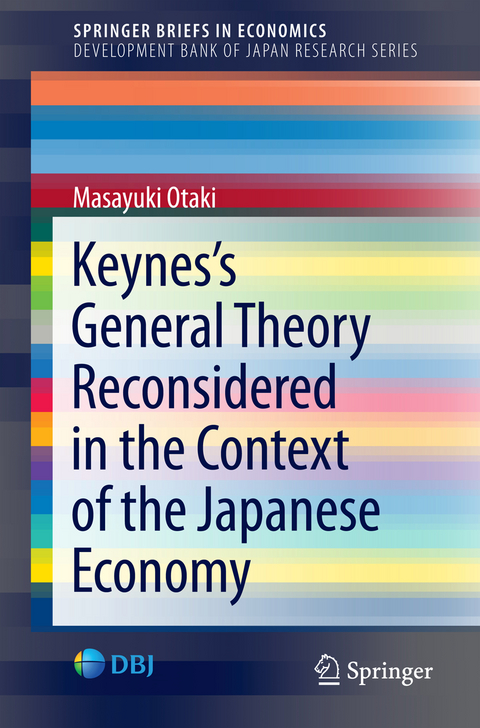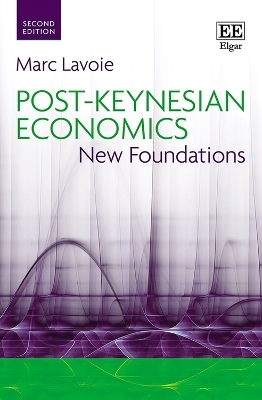
Keynes’s General Theory Reconsidered in the Context of the Japanese Economy
Springer Verlag, Japan
978-4-431-55913-9 (ISBN)
The theory thus developed is applicable to elucidating some serious political economic causes that entrap the long-stagnated Japanese economy. For example, an analytical explanation is provided about why disinflation/deflation incessantly progresses despite the exorbitant expansionary monetary policy (ijigen kin-yuu seisaku) by the Bank of Japan. This phenomenon is an unsolvable question from the quantity-theoretic approaches (e.g., monetarism and new Keynesianism) which, although they differ in assumptions concerning the length of adjustment periods, commonly assume that the price level sooner or later rises in proportion to the quantity of money.
Owing much to Keynes, the author’s approach considers that the price level is mainly governed by its marginal prime cost which is equal to the nominal wage as a first approximation. As such, the drastically sagging wages during the past 10 years provoke serious disinflation/deflation. It should be noted that this discussion never depends on the quantity of money.
Masayuki Otaki is a professor of economics at the Institute of Social Sciences at the University of Tokyo; and academic advisor of the Research Institute of Capital Formation, Development Bank of Japan. His main areas of research are macroeconomic theory, environmental economics, educational economics, and economic thought. Born in 1957, Prof. Otaki received a Bachelor’s degree in economics at the University of Tokyo in 1981 and a Ph.D. in economics at the University of Tokyo in 1990. He was appointed professor of economics at the Institute of Social Sciences at the University of Tokyo in 2001.
Part I Reconsideration of The General Theory.- 1 Analyzing the Structure of The General Theory.- 2 Analyzing Book I of The General Theory.- 3 Analyzing Book II of The General Theory.- 4 Analyzing Book III of The General Theory.- 5 Analyzing Book IV of The General Theory.- 6 Analyzing Book V of The General Theory.- 7 Analyzing Book VI of The General Theory.- 8 Concluding Remarks of Part I.- Part II Developing a New Collective Intelligence from The General Theory.- 9 Developing a New Collective Intelligence from The General Theory.- 10 Concluding Remarks of Part II.
| Erscheinungsdatum | 25.05.2016 |
|---|---|
| Reihe/Serie | Development Bank of Japan Research Series | SpringerBriefs in Economics |
| Zusatzinfo | 1 Illustrations, color; 19 Illustrations, black and white; XI, 98 p. 20 illus., 1 illus. in color. |
| Verlagsort | Tokyo |
| Sprache | englisch |
| Maße | 155 x 235 mm |
| Themenwelt | Wirtschaft ► Allgemeines / Lexika |
| Wirtschaft ► Volkswirtschaftslehre ► Finanzwissenschaft | |
| Wirtschaft ► Volkswirtschaftslehre ► Makroökonomie | |
| Schlagworte | Decentralization between investment and saving • Effective demand • Involuntary unemployment under the flexible wage • liquidity • Speculative Bubbles |
| ISBN-10 | 4-431-55913-2 / 4431559132 |
| ISBN-13 | 978-4-431-55913-9 / 9784431559139 |
| Zustand | Neuware |
| Haben Sie eine Frage zum Produkt? |
aus dem Bereich


